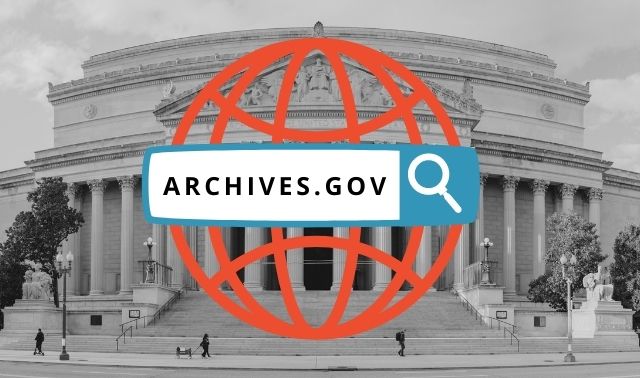You’re on “Jeopardy!” and you’re up against record-setting champ Ken Jennings. (Yikes!) But one of the Double Jeopardy categories is every family historian’s dream: Genealogy Repositories. Alex Trebek tells the contestants, “We’ll give you the name of the facility; you tell us where it’s located.” Hey, no problem—even though Ken is from Salt Lake City, you’re sure to run this category. As the person with the least amount of money, you get to go first. You know it’s risky to go straight for the toughest clue, but you’re confident this is your category. “I’ll take Genealogy Repositories for $2,000, Alex.” He reads, “The National Archives.” You beat Ken to the buzzer. Alex calls your name, and you respond excitedly, “What is Washington, DC?” Silence. Alex looks toward the judges. More silence. Then the judges’ decision: “Oh, I’m sorry,” Alex says sadly. As your jaw drops in astonishment, Ken rings in. “What are Washington, DC; College Park, Md.; Anchorage, Alaska; Atlanta; Boston; Chicago; Denver; Fort Worth, Texas; Laguna Niguel, Calif.; Kansas City, Mo.; New York City; Philadelphia; Pittsfield, Mass.; San Francisco; and … ” Ken pauses and looks puzzled. “Seattle?” he asks with an air of uncertainty. “You’re right!” declares Alex. Huh? What just happened? Technically, your answer wasn’t wrong: The main building of the National Archives and Records Administration (NARA) archives.gov is in Washington, DC. But even that huge structure can’t hold all of our nation’s valuable historical records. There are millions—and we mean millions—of cubic feet of paper. Some records are now housed in “Archives II” in College Park, Md. The rest reside in NARA regional archives across the country, where they’re preserved and accessible to the public. Each NARA “region” stores records that were either created or used by federal agencies and courts within its purview. This system not only saves tax dollars—it also saves genealogists time and travel expense. If you have Missouri ancestors, for example, you don’t have to trek to DC to find federally created Missouri records. You can visit the regional facility in Kansas City. Don’t live near Kansas City, either? You’re sure to find helpful materials at your nearest NARA facility, whether or not your family lived in its jurisdiction. In fact, if you haven’t yet discovered NARA’s regional facilities, you’re missing out on genealogical resources worth more than all of Ken Jennings’ “Jeopardy!” winnings. So let’s take a tour of the records categories—and family history answers—you’ll find at these 13 research repositories.




